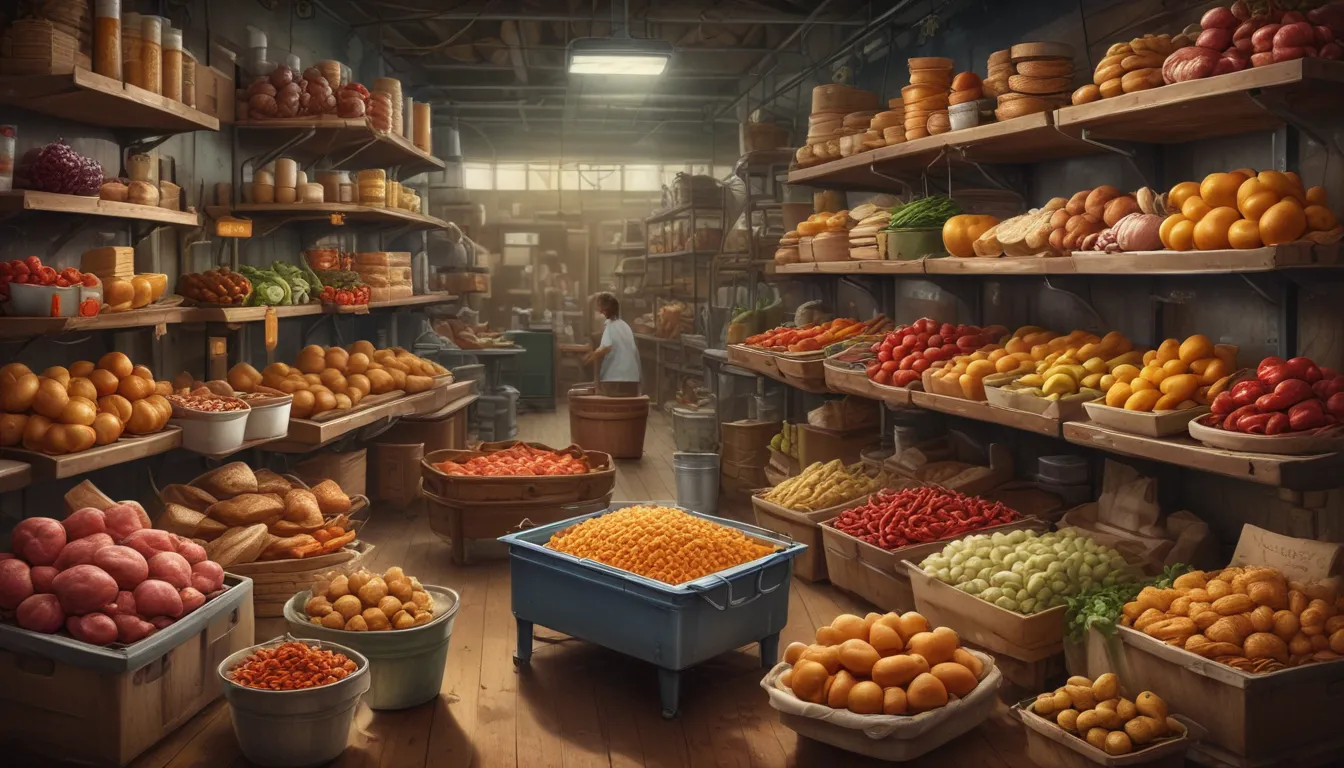A Note About Images: The images used in our articles are for illustration purposes only and may not exactly match the content. They are meant to engage readers, but the text should be relied upon for accurate information.
Food processing is a fundamental aspect of our daily lives, shaping the way we consume and experience food. From the historical roots to the modern innovations, the field of food processing is both complex and captivating. In this article, we will delve into 18 intriguing facts about food processing that shed light on the technology, innovation, and impact of this essential industry. Whether you are a food enthusiast, a science buff, or simply curious about the journey of your favorite snacks from farm to table, these facts will provide a deeper understanding of the world of food processing. So, let’s embark on a journey to uncover the secrets behind the foods we love.
The Rich History of Food Processing
The practice of food processing dates back thousands of years, with evidence of food preservation techniques found in ancient civilizations such as the Egyptians and Mesopotamians. These early methods laid the foundation for the sophisticated food processing techniques used today.
Extending Shelf Life Through Preservation Methods
By employing various preservation methods such as canning, freezing, and drying, food processing helps extend the shelf life of perishable goods, reducing food waste and ensuring a stable food supply for consumers.
Prioritizing Food Safety in the Industry
Food processing facilities adhere to stringent food safety standards to maintain the integrity and quality of their products. Stringent protocols are in place to prevent contamination and ensure that processed foods are safe for consumption.
Enhancing Convenience for Consumers
Processed foods provide convenience to consumers, offering quick and easy meal solutions for individuals with busy lifestyles. From pre-cut vegetables to ready-to-eat meals, food processing caters to the needs of modern consumers.
Playing a Vital Role in Global Food Distribution
Food processing plays a pivotal role in distributing food on a global scale. Through processes like dehydration and canning, perishable goods can be transported to distant locations, supporting food security worldwide.
Driving Innovation in the Food Industry
The food processing sector drives innovation in food technology, leading to the development of new products and processes that cater to evolving consumer preferences and dietary trends.
Involving Diverse Techniques for Food Transformation
From blanching and pasteurization to extrusion and fermentation, food processing encompasses a diverse range of techniques aimed at transforming raw ingredients into safe, palatable, and marketable food products.
Contributing to Economic Growth and Employment Opportunities
The food processing industry is a significant contributor to the global economy, creating employment opportunities and fostering economic development in regions where food processing facilities are established.
Implementing Strict Quality Control Measures
To maintain consistency and quality, food processing facilities implement rigorous quality control measures throughout the production process, ensuring that the final products meet regulatory standards and consumer expectations.
Addressing Nutritional Concerns Through Fortification
Food processing facilitates the fortification of essential nutrients in various food products, addressing nutritional deficiencies and promoting public health through fortified foods.
Adapting to Consumer Trends in the Industry
Consumer preferences and dietary trends significantly influence the food processing industry, prompting manufacturers to adapt their product offerings to align with changing consumer demands.
Playing a Role in Minimizing Foodborne Illnesses
Through proper handling, processing, and packaging, the food processing industry contributes to minimizing the risk of foodborne illnesses, safeguarding consumer health.
Embracing Sustainable Practices for Environmental Impact
Many food processing companies are embracing sustainable practices, such as waste reduction, energy efficiency, and responsible sourcing, to minimize their environmental impact and promote sustainability.
Offering Diverse Career Opportunities in the Industry
The food processing industry offers a wide array of career opportunities, ranging from food science and engineering to quality assurance and food safety, attracting professionals with diverse skill sets.
Fostering Collaboration Across the Supply Chain
Collaboration is integral to the food processing industry, with stakeholders across the supply chain working together to ensure the efficient and safe processing of food from farm to table.
Adapting to Technological Advancements for Efficiency
Advancements in technology, such as automation and data analytics, are reshaping the food processing landscape, optimizing production processes and enhancing efficiency.
Addressing Food Accessibility Challenges Through Innovation
Food processing plays a crucial role in addressing food accessibility challenges by developing products that cater to specific dietary needs and preferences, making nutritious options more widely available.
Subject to Stringent Regulatory Oversight for Consumer Safety
To uphold food safety and quality standards, the food processing industry is subject to stringent regulatory oversight, with governing bodies implementing measures to safeguard public health and consumer interests.
In conclusion, the multifaceted nature of the food processing industry is illuminated by these 18 intriguing facts, showcasing its historical significance, technological advancements, and impact on global food systems. As consumers continue to seek convenient and nutritious food options, the role of food processing in meeting these demands remains paramount.
Frequently Asked Questions
What are the key benefits of food processing?
– Improved food safety through preservation techniques
– Extended shelf life of products
– Enhanced nutritional value through fortification
– Increased accessibility to a wide variety of food products
How does food processing impact the environment?
While food processing can contribute to food waste and energy consumption, advancements in sustainable practices aim to minimize environmental impact and promote responsible resource management.
Our commitment to delivering trustworthy and engaging content is at the heart of what we do. Each fact on our site is contributed by real users like you, bringing a wealth of diverse insights and information. Trust in our commitment to quality and authenticity as you explore and learn with us.






